More recently, you held a sweet smiling peanut in your hands, and now you began to notice that your child has turned into a capricious child with signs of aggression? By force, he took away from another child a toy on the playground, and today he became the instigator of the fight in the kindergarten. Such a manner of behavior of the baby, unfortunately, is closely familiar to many parents. Often, the manifestation of aggression is steps in the formation of the personality of the child and quickly passes. But in some cases, aggressive behavior indicates serious problems of adaptation of a child in society. How not to become a puppet of a young aggressor, to understand the reasons for this behavior and, most importantly, how to deal with childhood aggression?
Content
- What is children's aggression?
- The main causes of children's aggression
- Manifestation of children's aggression: age -related features
- The consequences of children's aggression: what to expect to parents?
- Children's aggression: recommendations of psychologists
- Children's aggression: Memo for parents
- Children's aggression: Games that help cope with the problem
- Video "How not afraid of children's aggression"
What is children's aggression?
The word "aggression" is often presented incorrectly. Most imagine that an aggressor is always an angry, uncontrollable and evil child. In fact, aggression is not an emotional state, but a model of behavior of a small member of society, which is formed at a very young age.
In other words, aggression is a specific reaction of the individual to certain life events in the form of strong discontent by the final outcome. A child’s aggression can be aimed not only at the external environment, but also at himself.
This happens when the baby cannot correctly control his feelings, for example, fear or anger. Soon he loses control and there is a negative splash of emotions in the form of ill-wisiness in relation to some object. At the same time, it is very important to learn how to distinguish between the normal negative emotions of the child, thanks to which he shows his position, and the destructive behavior of babies, namely, children's aggression.
No matter how surprisingly it sounds, the makings of aggression can appear in the baby in the womb. Imagine a situation where the baby begins to kick strongly in a woman’s tummy, which is in the last month of pregnancy. She can tell the child a dissatisfied tone so that he stops kicking or gently ask him to calm down a little, because his mother is uncomfortable. Since the baby is able to understand the emotions of the mother, in the first case he will have more chances to grow an aggressor.
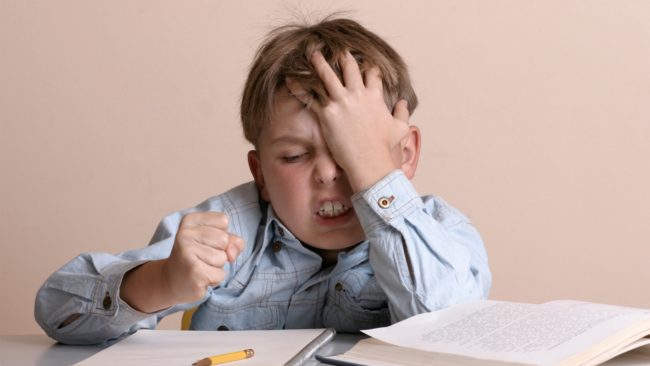
The main causes of children's aggression
In order not to make mistakes in his behavior in relation to the child and curb the first signs of aggression, let's figure out the main reasons for its appearance in children.
Family environment as a cause of children's aggression
Often, it is the bad relationships with parents that cause children's aggression. Observations of psychologists managed to notice the most critical situations in the family:
- Rejection of children by parents. It was established that especially severe forms of aggression develop in unwanted kids, whose parents are emotionally undergrowth before the appearance of offspring. And although they try to hide it from the baby, he feels it at a subconscious level. Therefore, by any methods, he tries to emphasize his right to exist, and it turns out very aggressively.
- Complete indifference from the parents. One can only imagine how hard a small crumb is, which a mother or father reluctantly cares about, or even at all treats her hostile. Such a child is in constant fear and is completely normal that his behavior can be compared with a hedgehog, which injures everyone around with sharp thorns.
- Parental's reluctance to see a person in a child. Even in the year, the baby is already an individual person with his own, albeit primitive, views on life. Constant criticism, pulling, humiliating comments will very quickly make an embittered aggressor out of the child.
- Total control or, conversely, its complete absence. The hypoproope (guardianship deficit) provokes anger and a sense of injustice, and the longer it will last, the more naughtral behavior will become. And the hyperoope -shoulder leads to the fact that the baby becomes spoiled and careless. And the first attempt by parents to cut the permissiveness of the baby will cause an attack of aggression.
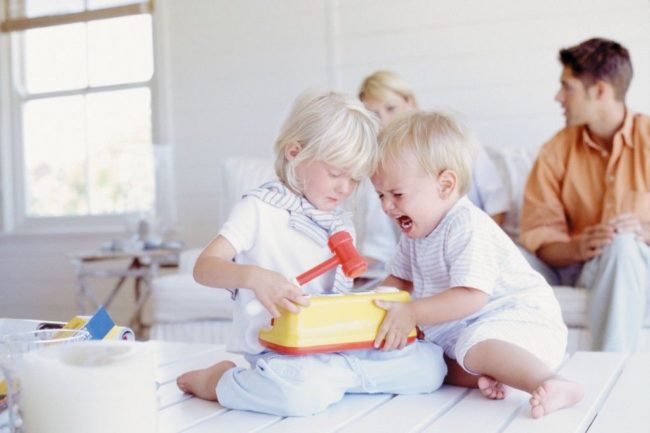
Personal factors that cause childhood aggression in babies
According to a child psychologist, aggression can develop in a child at a subconscious level. Such factors can affect the attacks of unmotivated aggression:
- Lack of a sense of security. Anxiety and fears of the mother during pregnancy or her uncertainty for the baby’s life after childbirth, leave an imprint on the children's psyche. The child subconsciously sees the threat in everything and defends himself as he can.
- Emotional instability (age crisis). Until 7 years old, the psyche of children is unstable, they begin to be capricious for any trifle, fight and do not obey. If parents stop such whims too sharply, this often turns the child into an uncontrolled aggressor. As a result, if there is no correction of children's aggression, there is every chance to grow a morally inferior teenager.
- Guilt. Kids are still poorly distinguished by good behavior from bad, so they often offend parents or peers. If parents incorrectly explain to the baby how to behave, he experiences a depressed feeling of guilt and hides him behind aggression.
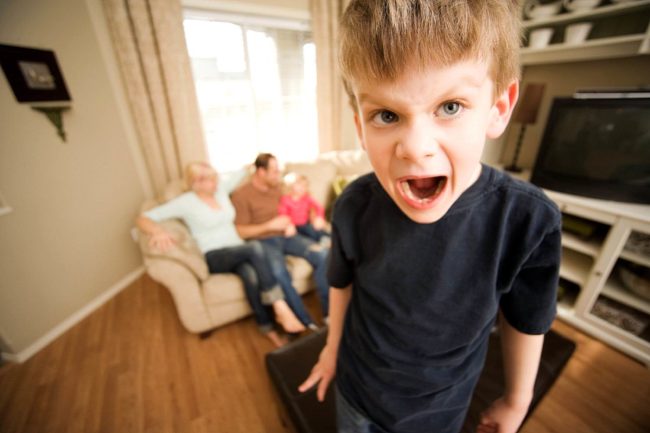
Situational causes of aggression in children
Absolutely unpredictable factors from the external environment can affect the behavior of the child. If you observe a small aggressor, you can notice the relationship of a negative reaction with hunger, strong noise and other stimuli.
- Overwork. Even in adults who feel bad or not sleeping, anger and irritability appear. What then talk about the baby. The missed breakfast and a sleepless night can become the culprits of the child’s aggression in kindergarten.
- Noise, heat, uncomfortable clothes and other stimuli. High music, a trip in crowded transport, high air temperature - a real catalyst for children's aggressiveness.
- Passion for TV, Internet. In the era of computer technology, kids master a laptop before they start talking. Psychologists are already starting to sound the alarm, begging parents to limit children's access to the Internet and TV. Unfortunately, the number of children's psychological disorders, aggression and even suicides tied with these resources is steadily growing.
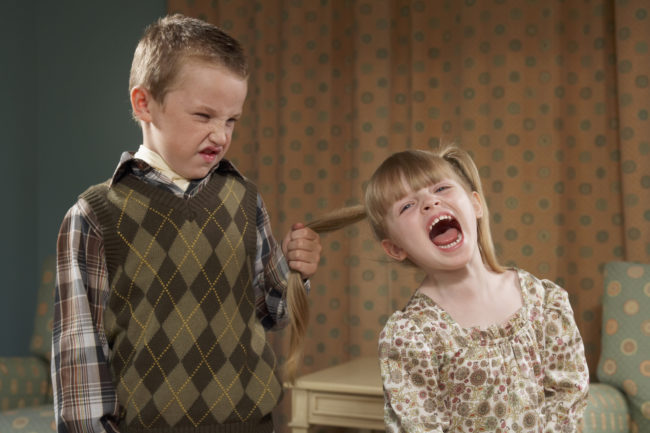
Manifestation of children's aggression: age -related features
Signs of aggression in children are manifested in different ways, which is directly related to their age. Therefore, we consider the specifics of aggressive behavior for different age categories.
Psychology of children's aggression up to 3 years
In this period, aggression is more often caused by things - toys, household items and other trinkets that interested the little cripus. The reaction can be very different: children bite, dig, spit, roll up tantrums, throw it with improvised objects.
At the stage of development, children learn to interact with other babies. They have to understand what it is to play together, share, distinguish their own and other people's things. The attempts of parents by force to take away someone else's ball will cause only stronger manifestations of aggression. The best choice for stopping an attack of children's aggression at 2 years or more is to switch the child to a new object. For example, show a passing fire engine or a walking puppy.
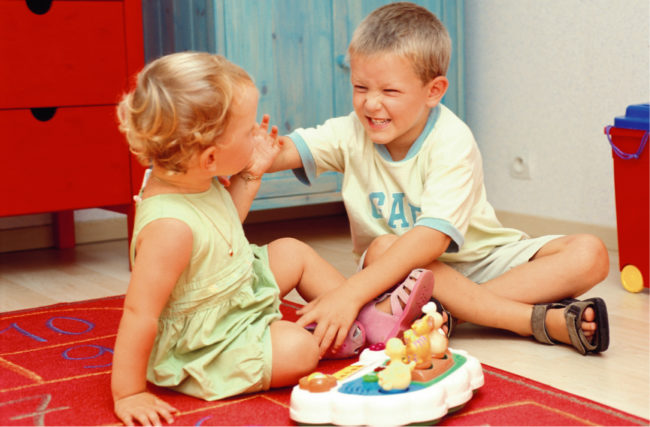
Manifestation of aggression in children from 3 to 5 years old
As a rule, physical children's aggression at the age of 4 is declining. True, this is if parents showed the baby the correct model of behavior in society. Now children express their egocentricity with words and deeds, and at this age it goes off scale.
At this age, children confuse reality with fiction, cannot really evaluate the actions of other children and adults. Therefore, for attempts to break their game without permission to break their game or, for example, to rearrange toys to another place, can cause aggression. Children's aggression manifest at 3 years can be by hostility to strangers, protests to fulfill the instructions of parents (crying, stomping legs, scattering things).
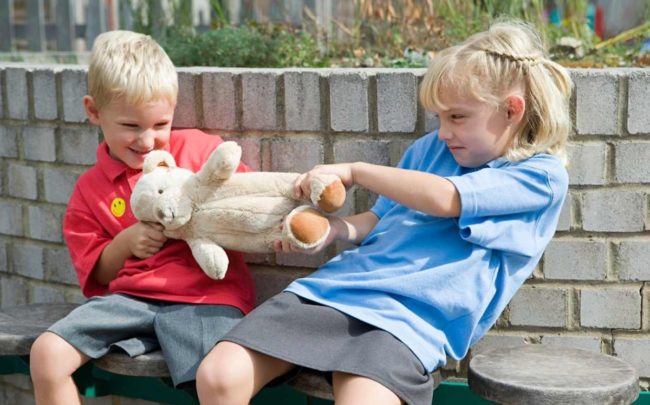
Aggression aged 6 to 10 years
At this age, children are already able to control aggression in relation to others. But if we are talking about protecting its interests, aggression is fully manifested. At this stage, boys and girls begin to react differently. Boys master “male methods” - they beat, push, etc. And the girls are characterized by verbal aggression - ridicule the opponent or its complete ignoring.
In adolescence, an aggressive model of behavior can be provoked by the asocial environment of the child (dysfunctional family, stress, rejection of the child with peers, the influence of the media). Aggression is manifested in the form of protests, disobedience, frequent fights with other children, self -aggression, suicide are possible.
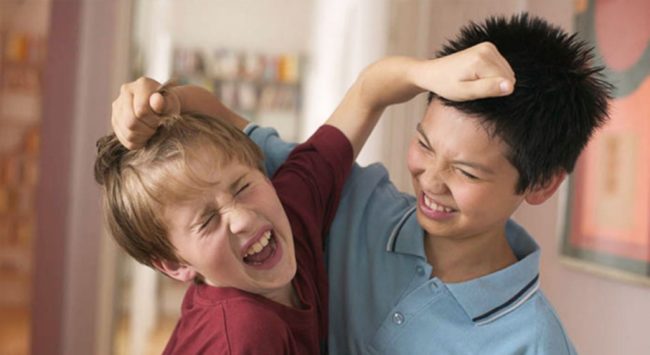
The consequences of children's aggression: what to expect to parents?
Unnoticed by children's aggression at a younger age or the choice of the wrong method of its correction can lead to destructive actions in the future. Deeply offended and embittered children who have not experienced their parents' support, retain an aggressive model of communication forever. This does not mean that they will grow up with ill -mannered brawls, but there will definitely not be out of them for sociable and friendly personalities.
The most unfavorable consequences of unprofitable children's aggression include:
- The rejection of the child others. Aggressors create moral or physical discomfort to other people. Therefore, over time, they begin to shun and even as an adult, the aggressor will remain a loner.
- An unhealthy fate. A small aggressor can turn into a mature despot. As a result, this behavior will not allow him to fully study, work, and start a family.
- Belonging to informal organizations. Once alone with his aggression, the child will look for like -minded people. Often, having contacted non -standard currents, the child destroys his life.
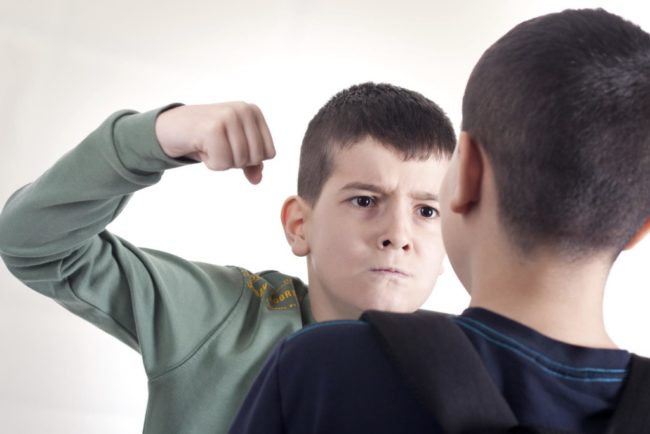
Children's aggression: recommendations of psychologists
In early childhood, aggression is a variant of the norm. But the child needs to be taught to cope with such negative manifestations. Therefore, parents should delicately direct the baby in the right direction by their example. If parents cope with such a task, then by the age of 10 their child will forget about his aggression.
This is how psychologists advise to cope with children's aggression:
- Monitoring the actions of a small aggressor. It is not necessary to ignore the behavior of the child, otherwise he will feel permissiveness. But we are not talking about strict and even more physical punishment measures. Dialogue in a calm atmosphere is welcome.
- Reception of the "Golden Meaning". Justify your comments, if there is a need, punish the child acceptable for his age by methods (limiting the TV, money, refusing to buy a long -awaited toy). But at the same time, do not forget to motivate the good behavior of the child, for example, sweets or going to the circus.
- Therapy with parental love. You can reassure the aggressor with hugs and love. This helps much more efficiently than screaming and plastering.
- The help of a psychologist. When parents cannot affect the situation, it is better to contact a child psychologist. And in the case of regular and long changes in the behavior of the baby, it is simply necessary to make such a decision.
In addition, the prevention of aggression plays an important role. After all, as you know, the tragedy is easier to prevent than to look for a way out of the situation later. Therefore, parents should take note of the following points:
- organization of proper children's leisure;
- dosed access to the TV;
- monitoring the environment of the child;
- cosiness and understanding in the family.
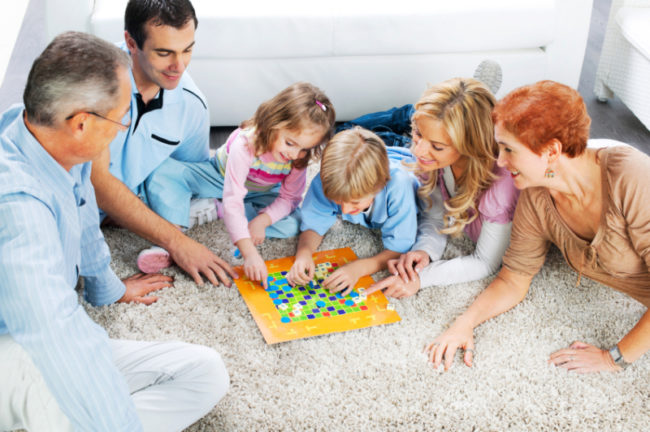
Children's aggression: Memo for parents
In a stressful situation, it is difficult for parents to recall the advice of psychologists, therefore, in kindergartens, schools, various circles you can meet printed memories about children's aggression. You can familiarize yourself with its content in the photo below:
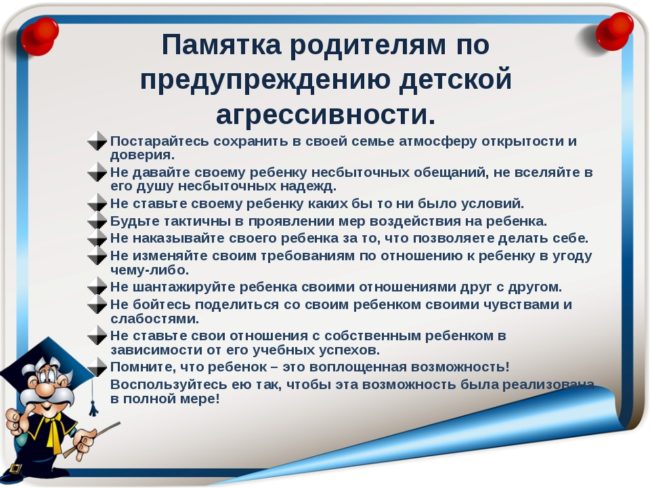
Children's aggression: Games that help cope with the problem
Children, playing, study very quickly. Therefore, you can overcome the attacks of aggression in the gameplay:
- Game "Issues" - The child and one of the parents are located against each other and in turn throw a ball. During the game, they give each other nicknames-assertions, but they should be unusable, for example: "Sasha Radik!" - "Dad Arbuzik!"
- The game "Stand?!" - Classic fight with pillows, but with the rules - swear, be with your hands or delve into.
- Fireworks game - Give the child a lot of colored paper and invite him to first tear it into pieces, and then throw them into the air. Of course, you will have to clean together.
- Game "Storm" - You can steam water with bathing or collecting water into any pelvis and invite the baby to blow very much to call the storm.
- The game "Stubborn donkey" - Invite the child to lie on the bed, hanging his legs down. Let him actively raise, and then lowers his feet, commenting on the actions of the phrases: “For no reason!”, “I will not!” etc.
- The game "Firing with snowballs" - Together with the child, make a “snowballs” paper and arrange a real shelling in the apartment.
Choose a game with your child that he will like the most and start playing it when the first signs of aggression appear. So you turn the next conflict into an exciting fun.
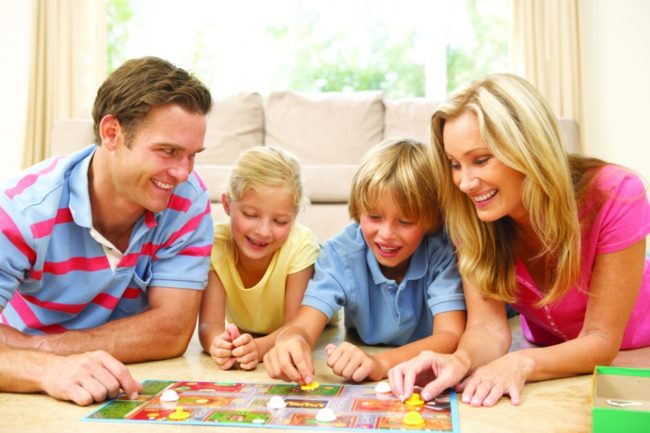
Try to pay more attention to your child, explain how good behavior differs from the bad, distract from bad emotions. Only your care and love will help the child grow a balanced and socially adapted person.









Comments
a couple of years ago, there was no side of metrogils from the same problem, there were no side effects ...
I’m not a fan of peeling at all, it saves from acne of metrogil, it also smoothes it ...
Great article! ...
I take the second course of the Capsules Climafite 911. The tides went very quickly. It became calmer, irritability went away and I sleep well ...
i also noticed - it is worth nervous, everything immediately affects the face. Therefore, I try to avoid conflicts and unpleasant people. Of the creams, I like Miaflow from wrinkles - smoothes not only small wrinkles ...